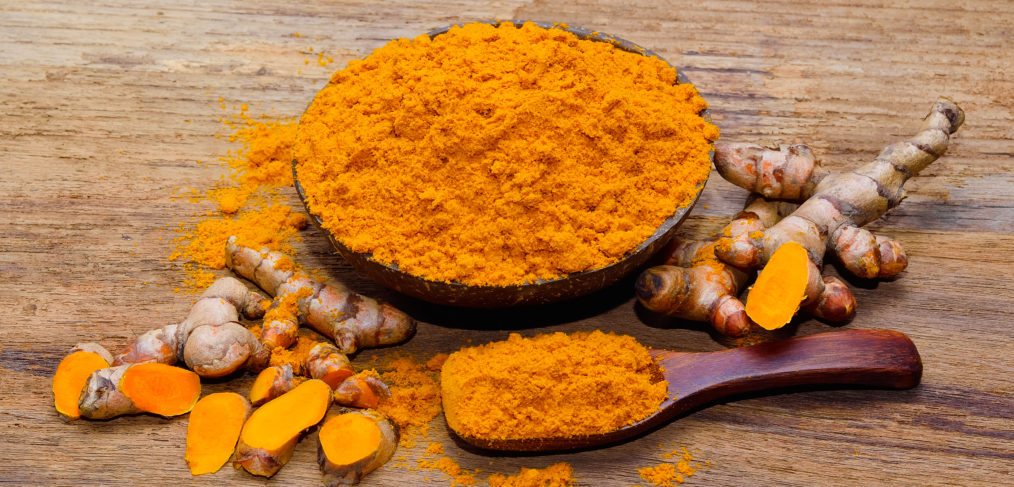What is Turmeric?
Turmeric (Curcumin Longa) is a yellow spice and is part of the ginger family. Turmeric has been used for thousands of years in South East Asia, China and India for cooking and as a medicine for all kind of inflammations in the human body. Turmeric is still currently used for cooking, however, scientists have recently revealed its true potential. Curcumin is the key ingredient responsible for the therapeutic properties of Turmeric.
Many of us who are new to the Turmeric supplement, get confused with the term Curcuminoids and Curcumin. It is occasionally wrongly concluded that if Curcuminoids are the ones responsible for most of Turmeric’s benefit to our health then why we need Turmeric.
Curcuminoids are a family of active compounds found within Turmeric.
Turmeric is made of several curcuminoids and curcumin is a small potent and the most important Curcuminoid of Turmeric. Curcumin is the key ingredient responsible for the therapeutic properties of Turmeric.
The curcuminoids found in Turmeric include Curcumin, bisdemethoxycurcumin and dimethoxycurcumin. Curcumin is the primary curcuminoid that has been most researched and written about in clinical studies and articles. Curcumin is not only the most studied curcuminoid, it is also the most abundant curcuminoid found in Turmeric.
Most of us have heard a lot about Turmeric and we continue to read articles about Turmeric in health publications and its awesomeness. However, some of us may not be so sure how to fit this amazing herb into our daily routine.
Benefits of Turmeric
Curcumin the active compound in Turmeric has been widely researched by scientists and health care professionals for its disease fighting potential and health benefits.
Turmeric can boost your immune system
Curcumin is the most researched curcuminoid found in Turmeric. Its anti-inflammatory, anti-oxidant and antimicrobial properties make it a health promoting powerhouse. For better absorption in the blood stream, curcumin should always be taken with Bioperine (Black Pepper extract) If swallowing a capsule is not your cup of tea, you can try making this yummy smoothie which is ideal with your breakfast or anytime of the day.
Carrot Turmeric Smoothie
½ cup baby Carrots
1 ripe Banana
1 cup fresh or frozen pineapple
½ tbsp. fresh peeled ginger
Contents of 2-3 PlantOrigin Turmeric Curcumin capsules (opened up)
1 tbsp. lemon juice
1 cup unsweetened Almond milk
Add all ingredients to a high speed blender and blend until smooth, add ice or enjoy at room temperature.
Turmeric can fight free radicals
Regular use of Turmeric has shown to increase antioxidant capacity and help fight free radical damage. Getting rid of free radicals can give a tremendous boost to your immune system, brain function and cancer prevention. Regular use of Turmeric can amp up the body’s natural anti-oxidant capacity and give a boost to the body’s defence system. The antioxidants found in Turmeric can also benefit our appearance and protect the skin from free radical damage from environmental pollutants.
Turmeric eases joint pain and Arthritis
Several studies and research done by scientists have shown very promising results in the ability of Turmeric to ease joint and Arthritis pain. The anti-inflammatory properties of Turmeric are excellent for fighting all kinds of inflammation and pain management associated with Arthritis. Turmeric is also an excellent remedy for sore muscles especially in athletes.
Here I would also recommend my favourite anti-inflammatory smoothie.
Open up 2-3 PlantOrigin Turmeric curcumin capsules and blend wild Blue Berries, roasted or steamed Beets (both are rich in anti-oxidants). Enjoy after a workout or any time of the day.
Turmeric can help treat and prevent cancer
Both Turmeric and curcumin have been studied widely for the treatment and prevention of cancerous cells. Several studies have been conducted on Turmeric’s role in preventing cancer with many promising findings.
Here’s a cancer fighting plant base dish for you to enjoy.
Toss chickpeas with ginger, cinnamon, cloves, cumin, garlic and a dash of black pepper and olive oil. Roast at 350 degrees for about 15 to 20 minutes until crispy. Open up 2 – 3 capsules of PlantOrigin Turmeric Curcumin and sprinkle. Garnish with cilantro Enjoy!
Turmeric protects your heart
Scientific studies have concluded that Turmeric and Curcumin protect your heart in numerous ways. Turmeric and curcumin reduce inflammation and free radical damage. Both these herbs have also shown to improve the heart’s Endothelium function. Endothelium is a thin membrane that lines the inside of the heart and blood vessels. These cells form an interface between circulating blood into the lumen and the rest of the vessel wall. Endothelial cells also release substances that control vascular relaxation and contraction as well as enzymes that control blood clotting and immune function.
A healthy lifestyle including exercise training, regular intake of anti-oxidants and an anti-inflammatory herb like Turmeric and curcumin have beneficial effects on endothelial function and can reduce the risk of heart disease. Along with Turmeric and Curcumin a diet rich in fruits and vegetables will also benefit the endothelial function.
Turmeric for a healthy gut
Even though most of us associate Turmeric with spicy food and curry, Turmeric can treat inflammatory bowel conditions like Colitis and irritable bowel syndrome.
Turmeric can boost your mood
Curcumin’s impact on “Brain Derived Neurotrophic Factor”, also known as BDNF, has shown to have a potential use in the treatment of depression. The BDNF gene provides instructions for making a protein found in the brain and spinal cord called brain-derived neurotrophic factor (BDNF). This protein promotes the survival of neurons or nerve cells by playing a role in the growth, maturation and maintenance of these cells. Regular use of Turmeric Curcumin can reverse detrimental brain changes that occur during depression. Several studies have shown that Turmeric can boost the levels of mood regulating neurotransmitters like serotonin and dopamine.
Turmeric can stave off neurodegenerative disease
Because curcumin crosses the blood-brain barrier, several studies have shown that our brain can benefit from Turmeric’s anti-inflammatory, antioxidant benefits and help with conditions like Alzheimer’s. Regular use of Turmeric has shown to protect brain function as we age.
Turmeric improves long-term cognitive function
As discussed earlier in this article, regular use of Turmeric curcumin has proven to boost brain health by increasing healthy levels of a hormone called BDNF. Therefore, it plays a key role in the improvement of cognitive function.
Turmeric is a powerful weapon against all types of inflammation.
Inflammation in the human body is the root cause of several health disorders like metabolic syndrome, heart disease and even cancer. Inflammation in the human body has been linked to cognitive decline. Turmeric prevents the production of inflammatory genes. Turmeric’s extremely powerful anti-inflammatory properties are a powerful weapon and provide tremendous benefits.


